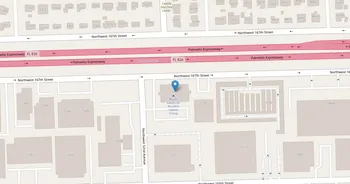Tulsa Welding School (TWS), Jacksonville : Overview, Courses, Scholarships & Rankings
About Tulsa Welding School
In a port city where metal and logistics keep things moving, Tulsa Welding School's Jacksonville campus leans into hands-on learning. It's known for practical training in skilled trades, taught by instructors with shop-floor experience and a safety-first mindset. Labs focus on real tools and materials, with tutoring, advising, and career guidance close by. The culture is focused and friendly, built on teamwork, persistence, and steady coaching.
Student life runs on camaraderie and shared goals, from study circles to quick gear talks between classes. And when the day's done, beaches, riverfront parks, and a down-to-earth food scene are close. The campus has a reputation for employer connections, resume support, and hiring visits that turn practice into opportunity. Jacksonville's shipyards, fabrication shops, and contractors offer real-world context, so students finish fluent in shop culture. Distinctive trait here? No frills, just honest craft and a clear path into work.
Key Institutional Details
Contact & Profile
Academic & Institutional
Academic Programs & Fields of Study
Tulsa Welding School (TWS), Jacksonville offers 1 degree programs across 1 major academic fields, graduating approximately 984 students annually. The most popular fields by graduate volume are Production (1 programs, 984 graduates). Explore program details, award levels, and graduate demographics below.
Production (1 programs, 984 graduates)
Manufacturing Technology, Quality Control and Industrial Arts
| Program Name | Graduates | Gender Distribution | Award Levels | CIP Code |
|---|---|---|---|---|
| Welding Technology | 984 |
|
Certificate (1-2 yrs)
Other Award
|
48.0508 |
Tuition, Fees & Estimated Costs
Overview of tuition rates, housing, and other annual education expenses for undergraduate and graduate students
Financial Aid & Student Support
Summary of scholarships, grants, student loans, and financial aid statistics for undergraduate students
Student Success Metrics
Graduation rates and post-graduation earnings to help assess student outcomes and long-term value of education.
Loan Burden & Repayment Outcomes
Breakdown of loan repayment rates and student debt levels by income and dependency status.
Frequently Asked Questions
Find answers to the most common questions about Tulsa Welding School (TWS), Jacksonville
What academic programs and degree levels does Tulsa Welding School, Jacksonville offer?
Tulsa Welding School (TWS), Jacksonville offers 1 academic programs across 1 major fields of study, with available degree levels: Certificate (1-2 yrs), Other Award.
Most popular program areas include:
- Manufacturing Technology, Quality Control and Industrial Arts (1 programs)
Data based on IPEDS program completions for 2023-2024 academic year. Numbers reflect programs where students graduated, not all offered programs.
What financial aid and scholarships are available at Tulsa Welding School, Jacksonville?
Tulsa Welding School (TWS), Jacksonville provides financial aid to 69% of first-time, full-time students, with average grants of $6,334 and average loans of $7,363.
Average financial aid amounts by type:
- Pell grants: $5,371
- State/Local grants: $9,662
- Institutional grants: $1,905
- Federal loans: $6,647
The university supports 943 students with grants and 886 students with loans annually.
Data based on IPEDS for 2022-2023 academic year. Financial aid amounts and percentages may vary by program, enrollment status, and individual circumstances.
What is the average salary for Tulsa Welding School, Jacksonville graduates?
Tulsa Welding School (TWS), Jacksonville graduates earn a median salary of $39,055 after 6 years and $41,067 after 10 years.
The salary range 10 years after graduation spans from $20,174 (25th percentile) to $63,210 (75th percentile), with top earners reaching $80,300 (90th percentile).
Data based on IPEDS for 2022-2023 academic year. Salary data reflects graduates who received federal financial aid (approximately 60% of all graduates). Actual earnings may vary significantly based on program, location, and individual circumstances.
Related Universities




Found something useful? Help others discover it too! Share with friends, on social media, or save for later - every share helps someone find the information they need.